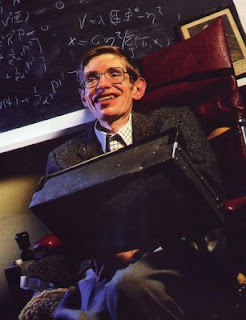A QUARK
A Brief History of Time is a very famous book written by the great Stephen Hawking, I bought this book like a year ago. The matter written in it was so complex that no sooner did I read a couple of pages I would feel drowsy and sleepy, but now that I am a Computer Engineer, there is very less pressure on me and I read 30 pages in one go.
Till about 100 years ago we all thought that an atom is the most fundamental particle in the universe, then we found about electrons, then neutrons and then protons. Then came the concept of anti matter and we found positrons as well. I read about quarks and gluon in the book and found lepton while searching for the former online.
A quark is a generic type of physical particle that interacts via all four fundamental forces which are gravitation, electromagnetism, weak interaction and strong interaction. The quark forms one of the two basic constituents of matter, the other being lepton.Various flavors of quarks combine in specific ways to form protons and neutrons, in each case taking exactly three quarks to make the composite particle in question.
Leptons are a family of fundamental subatomic particle, composed of the electron, the muon, and the tauon (or tau particle), as well as their associated neutrinos (electron neutrino, muon neutrino, and tau neutrino). Leptons are spin 1⁄2 particles, and as such are fermions. Leptons do not strongly interact, in contrast to the quarks.
In particle physics, gluons (glue and the suffix -on) are elementary particles that cause quarks to interact, and are indirectly responsible for the binding of protons and neutrons together in atomic nuclei.
Well the bottom line is that neither atom and now neither and electron, proton or a neutron are fundamental particles and the fundamental particles will keep getting smaller as their constituents are discovered.
One more thing I have been reading in a brief history of time is the attempt to unify the two theory of quantum mechanics and the general relativity to form a common theory called quantum gravity.
Quantum gravity is the field of theoretical physics attempting to unify quantum mechanics, which describes three of the fundamental forces of nature (electromagnetism, weak interaction, and strong interaction), with general relativity, the theory of the fourth fundamental force: gravity. One ultimate goal hoped to emerge as a result of this is a unified framework for all fundamental forces— called a "theory of everything" (TOE).




1 comment:
very informative...and very interesting topic !!
Stephen Hawking is the smartest living individual currently in this field...i was watching a show on discovery about him the other day.
Post a Comment